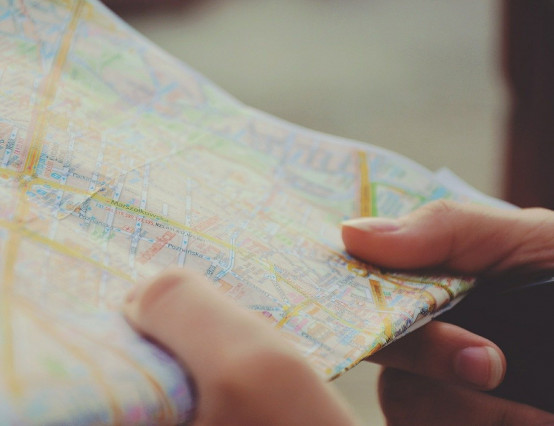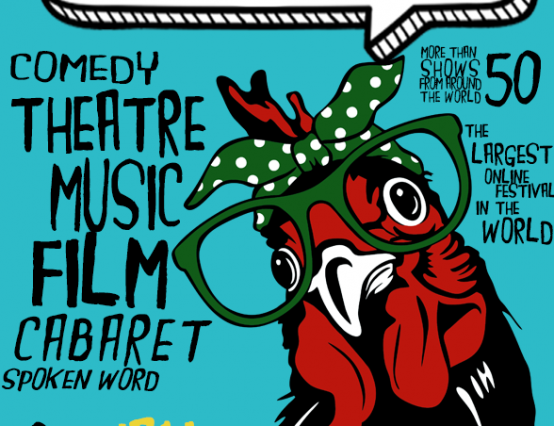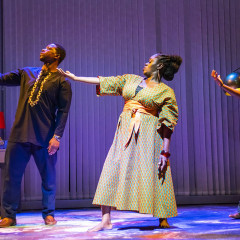Having been warned copiously not to look at the art exhibit, and having definitely not ignored said advice for the last half hour, we were finally allowed upstairs. Picture the scene: a big open room in an art gallery with nothing but a stage, some melty-out-of-focus art-work (no explanation given) and rows of nervous-looking people.
Said nervous people were then gently pushed into talking to each-other and generally being sociable. To help us along, ‘Girl Gang Manchester’ did a fantastic job of bringing the energy of the crowd up, and getting us comfortable with the idea of sharing our opinions with complete strangers (it involved a giant blow-up-globe and a sense of humour).
Reclaiming the old idea of ‘Utopia’, the premise of this is essentially, to fix humanity’s biggest problems. First on the agenda (and arguably the most current, given recent events), was democracy. Instead of deciding to carry on being ruled by crusty, out-of-touch political elites, Brett Hennig put forward the refreshing idea of simply choosing our leaders at random. Our future was further brightened by current political action being launched in Wales (The Future Generations Act), showcased by Future Generations Commissioner for Wales, Sophie Howes. Both introduced their cases with humour, enthusiasm and some hard, scary facts.
Inequality was next on the agenda, and my student debt-laden mind briefly drooled over Dr Johnna Montgomerie’s idea of selectively abolishing household debt, for the benefit of the economy, not just me, I should point out. I found the other speaker’s topics a little dry (weirdly, money ought to be boring). Young Identity presented the case that access to art is the most important thing for young people. Speaking as someone who loves reading, music, writing and painting, I still wouldn’t put art on the top of that pile, and I appreciate the irony of being a young voice contributor and saying that. To be at a stage in development where your brain is undergoing complete re-wiring, for me, mental health has to come first. Access to art is certainly an under-resourced route to treating that, but so is nature. Until these things become more collaborative, we aren’t going to get anywhere.
By the time we’d got to problem three, 'How do we fix History?', I have to say I’d completely lost interest, possibly because the crowd’s energy was winding down. That said, some of the most meaningful things shared were personal contributions to the debates, including one person’s intimate memories of her mother passing on cultural stories and songs that had allowed her to pursue something closer to equality than her mother had ever been able to achieve. Events can’t ever truly engineer this kind of contribution every time, but I think this is demonstrative of the ideals behind the talks, and hope this is the kind of idea that endures. All in all, more as an active process than anything else, this balance of power between lecturer and audience is something I’d like to see more of.









0 Comments